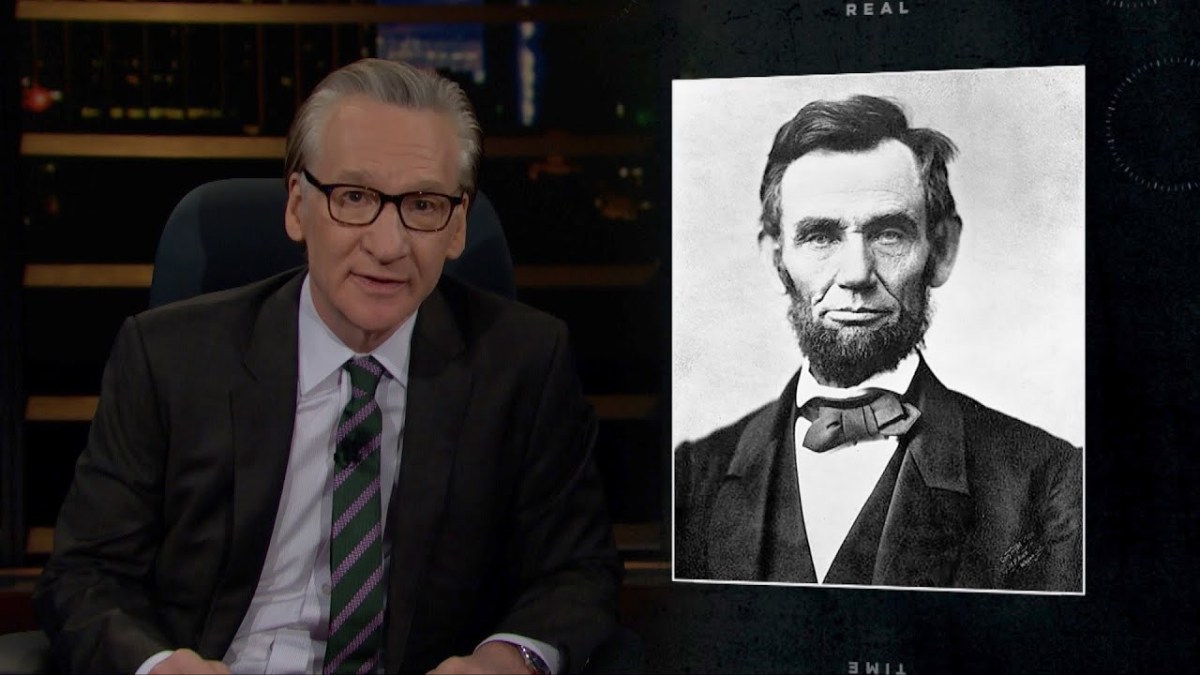When I first tried to watch Friday’s Real Time With Bill Maher, HBO Max brought up something I wasn’t expecting. That’s weird, I thought. Bill Maher isn’t wearing glasses like he’s been wearing for the last few months. Then I realized that, for some reason, the interface had brought up an episode from this time last year — but the difference between watching the show in 2021 and watching it now seemed worth mentioning.
What does that boil down to? The applause that greets Maher when he takes to the stage. A year ago, it was enthusiastic; now, it’s far more emphatic. There are a few possible reasons for this: the crowds now might just be larger; the dearth of live entertainment could be seeing a larger response to the instances of it that are still extant. But it also seems like the position Maher has taken with respect to the pandemic — and what The Atlantic dubbed the “vaxxed and done” position — has resonated with a lot of people. “I hope this will be our last show with masks,” Maher said when the show began; we’ll see what happens when the show returns in two weeks.
Recent events offered a challenge to Maher’s usual opening monologue juxtaposition; can you balance commentary on Russia’s invasion of Ukraine with bits about the Metaverse? “[Putin] said he was going to do it because Ukraine was going to acquire WMDs,” Maher quipped at one point. “What kind of superpower makes up sh*t like that?” He went on to compare Russia to Kanye West, an analogy that makes NATO Pete Davidson.
While the episode wasn’t without digs at “wokeness,” many of Maher’s barbs were aimed at Vladimir Putin or Donald Trump, who made for better satirical targets. “Ever see a homeless nut talking to himself on the sidewalk? Imagine if that guy could share,” Maher said about the launch of Truth Social, Trump’s social media platform.
Representative Ruben Gallego was up first. Both for his role in the government and his time as a Marine in Iraq — the subject of a recent memoir — he had a number of areas of expertise relevant to the week’s discourse. Maher brought up sanctions, and his concern with them — namely, that they adversely affect civilians more than the people in power. Gallego talked about ways the United States could support Ukraine. He noted that they didn’t have to defeat the Russian Army — “you just have to make them hurt,” he said.
“I fought an insurgency,” he said later in the segment. “I know how hard it is.”
Maher brought up the country’s track record when it comes to recent military interventions. “At the end of the day,” Gallego said, “what do we morally want to do here?” He went on to argue that this conflict was relatively easy to parse, morally speaking.
On the domestic front, Gallego also made the argument for “declaring victory over COVID,” though he was mum on whether or not he would primary Senator Kyrsten Sinema.
“If I do it, how much could I put you down for?” Gallego asked Maher — a nod to Maher’s 2012 donation to Barack Obama. Maher also brought up his frustration with the term “Latinx.” Gallego expressed less frustration with it; he opted for a more pragmatic approach, saying that he understood and respected people who prefer it, but didn’t use it himself.
The episode’s panel began with Maher discussing CPAC, which he described as “a Woodstock of the mentally impaired. In a nice way.” New York Times columnist Bret Stephens cited fears over demagoguery, while antiracism lecturer and podcast host Chloé Valdary described a nation “exhausted by polarization.”
Maher then brought up the news that Rep. Rashida Tlaib was set to deliver a progressive response to President Biden’s State of the Union address; Maher — who has a contentious history with Tlaib — thought it was a bad idea. Valdary was more open to it, and argued that the Democrats have an advantage over the Republicans in that they have the capacity to criticize themselves and, in theory, make themselves better.
The second half of the panel focused on Ukraine. Maher cited the ill effects of sanctions on general populations in Iran, Afghanistan and Cuba. Stephens was critical of Tucker Carlson’s statements applauding Putin, and went on to suggest that Putin was unlikely to stop at Ukraine. Maher was more skeptical. “This is not exactly a blitzkrieg,” he said.
The conversation about sanctions led Maher to return to one of his recurring targets — cryptocurrency. He pointed out that crypto is a lot harder to sanction, and that leaders like Putin have been able to make use of cryptocurrency to work around sanctions. Valdary was more optimistic, and noted that Ukraine had also been able to use crypto to its own benefit.
This led to a broader discussion of the Republican Party’s flirtation with Russia, and the idea of that as a way for conservatives to push back against diversity. “The people who are afraid of a diverse world — Russia is their savior country,” Maher said. For her part, Valdary argued that the GOP interest in Russia was a kind of funhouse mirror of “wokeness.”
During Overtime, Valdary discussed DEI training and her firm’s work doing anti-racism training. The larger context was of the role of education and children in politics, which found Gallego inveighing against the Republican position on the subject. “They just care about kids and schools when it’s a wedge issue,” he said.
New Rules found Maher asking protestors to actually carry signs indicating their grievances, issuing his frustration with romcom titles that read like commands (Marry Me; Kiss Me; etc etc.) and being horrified by sex toys that look like Alexa. The bulk of the segment explored, in Maher’s words, “signs that the Trump fever is starting to break.” And when you’ve lost the QAnon Shaman…
Last season, Maher returned repeatedly to a theme of national reunification. He did the same on Friday, and urged Democrats to avoid coming off as judgmental. “We’ve all had a friend who dated a psycho,” he said. His advice? “Don’t talk politics at all.” He went on to recommend talking about Yellowstone as a good neutral subject. “Provide them a face-saving path to become traditional indoor Republicans again,” he added. He concluded the night by pointing out that the U.S. military had organized wrestling matches when occupying Japan after World War II — and that this had been important to the two former enemies eventually becoming allies. Wrestling might not be the most obvious example of soft power out there, but it might well be the most entertaining.
Thanks for reading InsideHook. Sign up for our daily newsletter and be in the know.


















